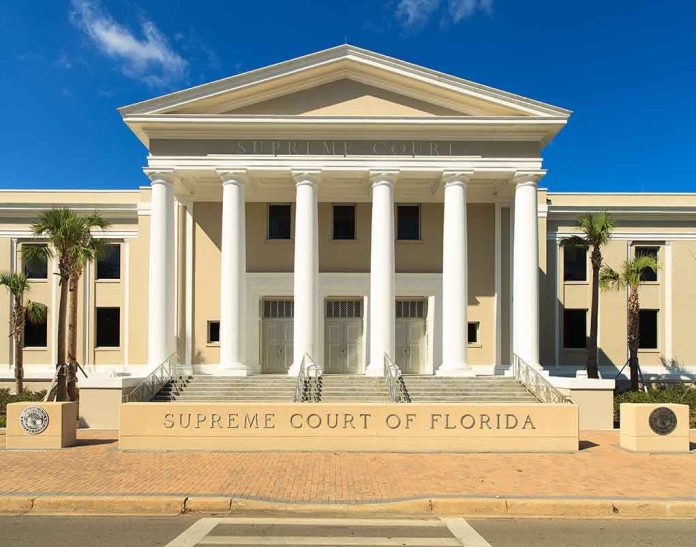
The Supreme Court has granted legal defenders of women’s sports the right to present their case before the nation’s highest court, marking a pivotal moment in the battle to preserve female athletic opportunities against transgender athlete participation.
Story Highlights
- Supreme Court will hear Little v. Hecox and West Virginia v. B.P.J. cases challenging transgender athlete restrictions
- Legal defenders of Save Women’s Sports Act gain opportunity to argue constitutional protections for female athletics
- Cases focus on Equal Protection Clause and Title IX implications for biological sex-based sports categories
- Decision will establish national precedent affecting school sports policies and competitive fairness nationwide
Constitutional Challenge Reaches Highest Court
The Supreme Court’s decision to hear Little v. Hecox and West Virginia v. B.P.J. represents the culmination of years-long legal battles over state laws protecting women’s sports. West Virginia’s Save Women’s Sports Act, enacted in 2021, restricts participation in female-designated sports teams to athletes assigned female at birth. Legal defenders now have their opportunity to present constitutional arguments supporting biological sex distinctions in competitive athletics before the nation’s highest judicial authority.
Title IX and Equal Protection Arguments Central to Defense
The cases hinge on competing interpretations of federal civil rights law and constitutional protections. Defenders of the Save Women’s Sports Act argue that preserving separate categories based on biological sex serves legitimate government interests in maintaining competitive fairness and protecting opportunities specifically created for female athletes. They contend that Title IX’s original purpose was to expand women’s athletic participation, which requires recognition of biological differences between male and female competitors.
National Precedent Will Shape Future Policy
The Supreme Court’s ruling will establish binding precedent affecting transgender athlete participation across all states, impacting millions of student athletes and educational institutions. This decision follows the Court’s recent ruling in United States v. Skrmetti, which upheld restrictions on gender-affirming medical treatments for minors, suggesting potential judicial receptiveness to policies recognizing biological sex distinctions.
Legal experts anticipate the Court will consider scientific evidence regarding male-female athletic performance differences, competitive fairness concerns, and the scope of constitutional protections. The timing during the 2025-26 term positions this ruling as a defining moment for both women’s sports and broader questions about gender identity in public policy.
Conservative Victory in Long-Standing Battle
This Supreme Court opportunity represents a significant win for conservatives who have argued that progressive gender ideology threatens fundamental fairness in women’s athletics. The legal defense successfully navigated lower court challenges to reach the Supreme Court, where constitutional originalists may prove more receptive to arguments grounded in biological reality and the original intent of Title IX protections.
The cases affect not only competitive sports but broader questions about sex-based classifications in education, highlighting the intersection of parental rights, constitutional interpretation, and common-sense policies that recognize biological differences. For families who have watched female athletes lose scholarships and records to biological males, this Supreme Court hearing offers hope for restoring sanity to women’s sports competition.
Sources:
Supreme Court to Decide Legality of Trans-Athlete Bans
Supreme Court Takes Up Cases on Transgender Athletes


